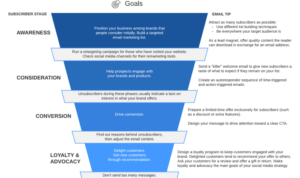Building an Affiliate Marketing Strategy dives into the world of online business partnerships, offering a roadmap for success that is both exciting and lucrative. From defining affiliate marketing to creating engaging content, this guide covers it all with a fresh, hip flair.
Understanding Affiliate Marketing: Building An Affiliate Marketing Strategy

Affiliate marketing is a type of performance-based marketing where a business rewards one or more affiliates for each visitor or customer brought by the affiliate’s own marketing efforts. It plays a crucial role in online business by leveraging the power of influencers and content creators to promote products or services.
How Affiliate Marketing Works
In affiliate marketing, an affiliate promotes a product or service to their audience using a unique tracking link. When a visitor clicks on the link and makes a purchase, the affiliate earns a commission. This process allows businesses to reach a wider audience through the affiliate’s existing platform, increasing brand visibility and driving sales.
Benefits of Incorporating Affiliate Marketing
- Affordable Marketing Strategy: Businesses only pay affiliates when a desired action, such as a sale, is completed, making it a cost-effective marketing approach.
- Increased Brand Exposure: Affiliates can introduce products to their followers, providing businesses with access to new audiences and potential customers.
- Performance-Based Model: Since affiliates are compensated based on their performance, businesses can easily track the effectiveness of their marketing campaigns and adjust strategies accordingly.
- Builds Trust and Credibility: Affiliates act as trusted sources of recommendations, which can enhance the credibility of a business and its products in the eyes of consumers.
Setting Goals for Affiliate Marketing
Setting specific goals for an affiliate marketing strategy is crucial for the success of the campaign. These goals provide a clear direction, help in measuring the effectiveness of the strategy, and ensure alignment with the overall business objectives.
When setting goals for an affiliate marketing campaign, it is essential to choose measurable and achievable targets. Some examples of measurable goals that can be set include:
Increasing Website Traffic
- Goal: Increase website traffic by 30% within the next three months.
- Measure: Use Google Analytics to track the increase in website visitors.
- Action: Implement strategies, create engaging content, and collaborate with high-traffic affiliates.
Boosting Sales Conversion Rate
- Goal: Increase the sales conversion rate by 15% in the next quarter.
- Measure: Monitor the conversion rate using affiliate tracking software.
- Action: Optimize landing pages, provide exclusive discounts for affiliate referrals, and run A/B tests.
Growing Email Subscriber List
- Goal: Grow the email subscriber list by 500 subscribers in the next month.
- Measure: Track the number of new subscribers through affiliate marketing efforts.
- Action: Offer a lead magnet, collaborate with email-savvy affiliates, and run targeted email campaigns.
Aligning these goals with the overall business objectives can enhance the effectiveness of the affiliate marketing strategy. By ensuring that the goals contribute to the company’s growth, profitability, and brand awareness, the affiliate marketing campaign becomes more purposeful and impactful.
Selecting Affiliate Programs

When it comes to selecting affiliate programs, it’s crucial to choose the right ones that align with your target audience and niche. This decision can greatly impact the success of your affiliate marketing strategy. Let’s dive into the key factors to consider when choosing affiliate programs to partner with.
Compare and Contrast Different Affiliate Programs
- Commission Structure: Look for programs that offer competitive commission rates and incentives for performance.
- Product Relevance: Choose programs that offer products or services that are relevant to your audience and niche.
- Cookie Duration: Consider the length of time the affiliate program tracks referrals through cookies to ensure you get credit for sales.
Criteria to Consider When Choosing Affiliate Programs
- Reputation: Partner with reputable affiliate programs to build trust with your audience.
- Sales Support: Evaluate the level of support provided by the affiliate program in terms of marketing materials and resources.
- Payout Frequency: Look for programs that offer timely and reliable payouts to affiliates.
Tips on Identifying Affiliate Programs for Your Audience and Niche
- Research: Conduct thorough research to find programs that cater to your target audience’s needs and interests.
- Engagement: Choose programs that encourage engagement and interaction with your audience to drive conversions.
- Affiliate Manager: Establish a good relationship with the affiliate manager to gain insights and support for your marketing efforts.
Creating Compelling Content for Affiliates
Creating engaging content for affiliate marketing is crucial to attract and retain your audience. Authenticity and transparency play a significant role in building trust with your followers. By providing valuable, honest, and relevant content, you can effectively promote affiliate products or services. Here are some strategies and examples to help you create compelling content for affiliates:
Reviews
- Write detailed and honest reviews of the affiliate products or services you are promoting.
- Include both pros and cons to provide a balanced perspective.
- Share personal experiences and insights to connect with your audience.
Tutorials
- Create step-by-step tutorials on how to use the affiliate products or services.
- Provide valuable tips, tricks, and best practices to help your audience make the most out of the products.
- Include visuals, screenshots, or videos to enhance the learning experience.
Comparisons
- Compare different affiliate products or services within the same niche.
- Highlight the unique features, benefits, and pricing of each product to help your audience make informed decisions.
- Offer your personal recommendation based on your experience with the products.
Building Relationships with Affiliates
Building strong relationships with affiliate partners is crucial for the success of an affiliate marketing strategy. By fostering these relationships, you can ensure better communication, collaboration, and overall performance. Here are some tips on how to effectively build and maintain relationships with your affiliates:
Effective Communication
- Be responsive to your affiliates’ inquiries and concerns.
- Provide clear guidelines and expectations for them to follow.
- Schedule regular check-ins to discuss progress and address any issues.
Providing Support, Building an Affiliate Marketing Strategy
- Offer training and resources to help affiliates succeed.
- Be available to answer questions and provide assistance when needed.
- Reward top-performing affiliates with bonuses or incentives.
Incentivizing Affiliates
- Create a tiered commission structure to reward affiliates based on performance.
- Run contests or challenges to motivate affiliates to increase their efforts.
- Offer exclusive deals or promotions to affiliates to help drive sales.





